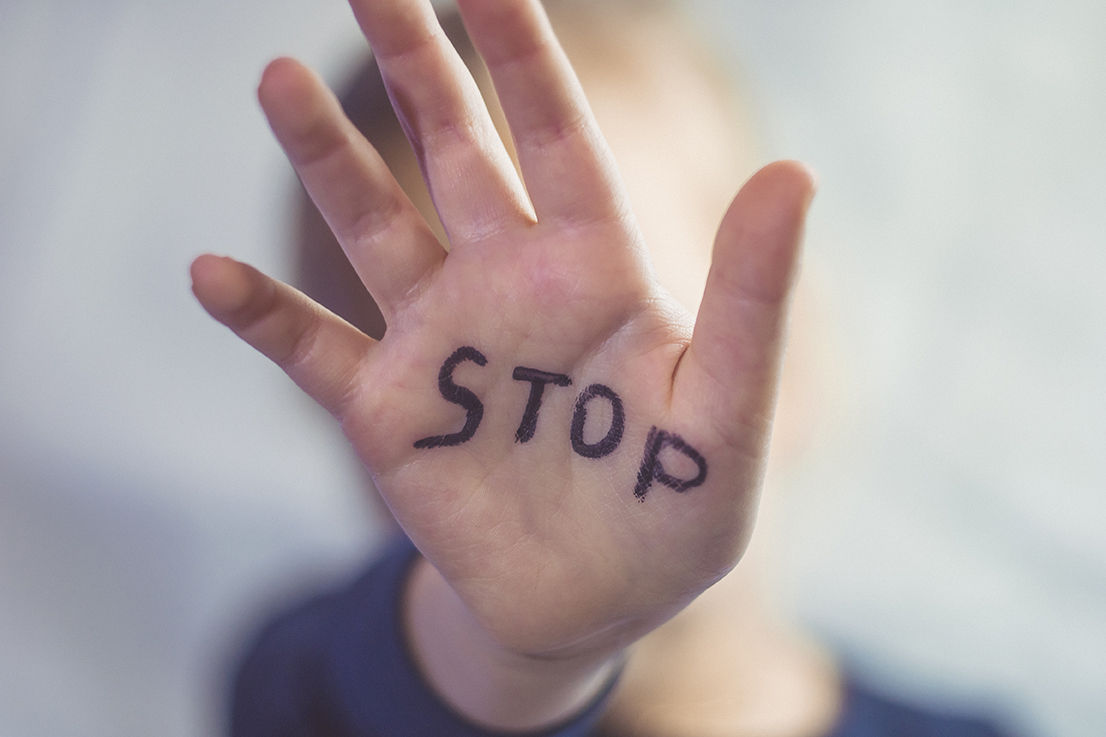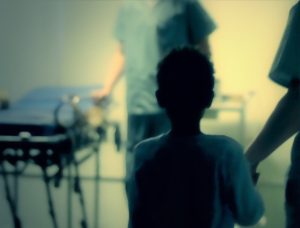CCHR calls on Massachusetts legislators to ban the use of electroshock for behavioral punishment, and not wait for the FDA to prohibit the shock device, under new Congressional law. We cannot wait until the FDA acts given its history of delays, while today children are still being tortured in the name of “therapy.”
By CCHR International
The Mental Health Watchdog
February 7, 2023
For more than a decade the Judge Rotenberg Center (JRC) special-needs facility in Massachusetts has come under scrutiny for alleged torture using its skin-electroshock device. As The Boston Globe reported on January 30, 2023, the facility requires residents to wear a shock device that can be used by staff to “discipline” residents at will. Just recently, the U.S. Congress passed legislation that gives the U.S. FDA (Food and Drug Administration) the authority to ban the shock devices. This followed the U.S. Court of Appeals for the District of Columbia Circuit overturning an FDA ban on the devices in 2021, claiming the agency did not have such authority.[1]
Many disabilities’ rights groups have condemned the electrical stimulation device (ESD), calling for its ban. The Citizens Commission on Human Rights International is among the advocacy groups that have supported this. In light of the Congressional response, CCHR sent a complaint letter to all Massachusetts legislators asking them not to wait until the FDA acts on this new law—as it is egregiously slow to act—but to ban the practice of behavioral electroshocking under the grounds of torture.
“We cannot wait until the FDA acts given its history of unconscionable delays, while today children are still being tortured in the name of ‘therapy,’” stated Jan Eastgate, president of CCHR International. “The FDA should not only ban this skin shock device used at JRC but also the entire electroshock practice in mental health.”
The CCHR letter points out that in June 2022, Massachusetts H.225 called for a study on banning the electroshock practice in order to change a person’s behavior.[2] However, this does not require more “study.” The U.S. has ratified the UN Convention Against Torture (CAT) which applies to all state and local governments in the United States.[3]
In 2010 and 2013, UN Special Rapporteurs on Torture sent urgent appeals to the U.S. government, urging an investigation into the JRC shock device and students subjected to electric shock that were violations under the UN Convention against Torture and other international standards.[4]
Juan E. Méndez, former special rapporteur on torture for the United Nations wrote in 2013 the JRC practices are “tantamount to torture.” “Protections are needed at the federal level to ensure that Level III aversives are brought to an end in the United States of America,” Méndez wrote in his report.[5]
A decade later and the torture inexcusably continues.
In 2022, members of the Harvard Law School Project on Disability published a report, “Torture in Law: Arguments in the U.S.,” which discussed the UN Convention Against Torture in relation to immigration but which has bearing on what is happening still at JRC, where children and adults are arguably tortured under the guise of “treatment.”
Per the Harvard law school article, the U.S. understanding of the CAT’s intent requires:
“for an act to constitute torture, there must be a showing that the actor [in this case JRC] had the intent to commit the act as well as the intent to achieve the consequences of the act.”It is required to show “individual mental health workers’ specific intent to inflict severe harm” and that the “government writ large [clearly and obviously] condones their conduct.”[6]
CCHR wrote to legislators that JRC staff may argue that they intend “to treat, not torture” but that is simply semantics to justify abuse in the name of therapy. If staff have been led to “believe this,” thus preventing the proof of intent, then those training them must be seen as instructors of torture, the entire facility is condoning it and continued government funding of the center is also tantamount to condoning it.
CCHR points to a definition of medical torture recently accepted in a New Zealand government inquiry into the electroshock-behavioral punishment of children there. It is defined as:
(1) the infliction of severe pain and suffering,
(2) by a person acting on behalf of the State,
(3) for the purpose of punishment.[7]
ProPublica found that New York City alone sends $30 million in state taxpayer dollars to the center. About 90% of the students are children of color and 90% are residents of New York City, according to a report by ProPublica.[8]
As The Boston Globe points out, “the fact that autistic children are still being shocked is unconscionable.”[9]
This and the fact that the FDA was so slow to ban the procedure warrants faster action, CCHR says.
Read the letter to Legislators here.
Additional information:
Lake Alice Psychiatric Hospital Children Were Tortured, Government Inquiry Finds
CCHR Issues Resolution to Replace Forced Psychiatric Treatment and Torture with Human Rights
Mental Health Abuse Reforms Aim to Protect Against Behavioral Abuse of Children
CCHR Wants Ban on Electroshock “Conversion Therapy” Extended to All ECT
CCHR Condemns FDA Stay on Ban of Skin-Shocking Students for Behavioral Control
FDA Took 25 Years to Ban Painful Behavioral Shock Device on Children
CCHR Supports U.N. and Rights’ Groups Demand for Urgent FDA Ban on Skin Electric Shock Devices
FDA Proposes Ban on Skin-Shock Devices to Punish Misbehavior in Children
Shock School Critic Says FDA Should Crack Down on Aversive Therapy
[1] Eric M. Garcia, “Will shock treatment finally be banned?” Boston Globe, 30 Jan 2023, https://www.bostonglobe.com/2023/01/30/opinion/will-shock-treatment-finally-be-banned/
[2] Heather Morrison, “‘It is not too late’: Advocates encourage lawmakers to act on bill banning electric shock, used at Judge Rotenberg Center in Canton,” MassLive, 9 June 2022, https://www.masslive.com/politics/2022/06/it-is-not-too-late-advocates-encourage-lawmakers-to-act-on-bill-banning-electric-shock-used-at-judge-rotenberg-center-in-canton.html
[3] https://www.aclu.org/other/faq-convention-against-torture
[4] Katie Hinman and Kimberly Brown, “UN Calls Shock Treatment at Mass. School ‘Torture,’” ABC News, 29 June 2010, https://abcnews.go.com/Nightline/shock-therapy-massachussetts-school/story?id=11047334; Quentin Davies, “Prisoners of the Apparatus”: The Judge Rotenberg Center, ASAN, 9 Aug. 2014, https://autisticadvocacy.org/2014/08/prisoners-of-the-apparatus/
[5] Op. cit., Eric M. Garcia, Boston Globe, 30 Jan 2023
[6] Matthew S. Smith & Michael Ashley Stein, “WHEN DOES MENTAL HEALTH COERCION CONSTITUTE TORTURE?: IMPLICATIONS OF UNPUBLISHED U.S. IMMIGRATION JUDGE DECISIONS DENYING NON-REFOULEMENT PROTECTION,” FORDHAM INTERNATIONAL LAW JOURNAL, Vol 45:5, 2022; pp. 797, 814, https://ir.lawnet.fordham.edu/ilj/vol45/iss5/2/
[7] https://www.cchrint.org/2022/12/30/lake-alice-psychiatric-hospital-children-were-tortured/; Ric Stevens, “Royal Commission of Inquiry into state care finds Lake Alice children were tortured,” NZ Herald, 14 Dec. 2022, https://www.nzherald.co.nz/nz/royal-commission-of-inquiry-into-state-care-finds-lake-alice-children-were-tortured/ZB3EVQL765ATLMDKSX6XHSTXEA/
[8] Op. cit., Eric M. Garcia, Boston Globe, 30 Jan 2023
[9] Ibid.




